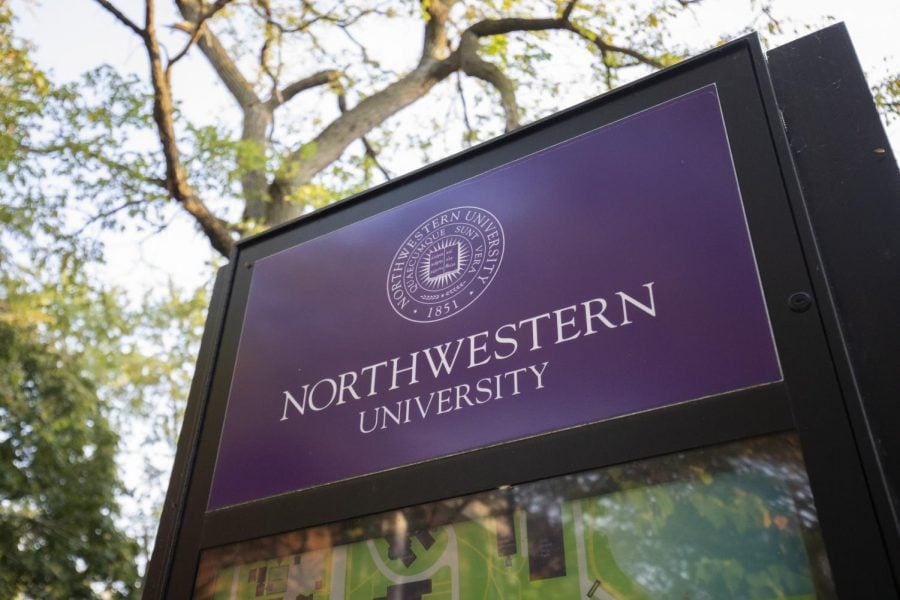NU’s Community Safety Advisory Board presents on implemented changes at Faculty Senate meeting
Daily file photo by Joshua Hoffman
The Community Safety Advisory Board updated Northwestern’s Faculty Senate on their activities at a Wednesday meeting.
March 10, 2022
Members of the Community Safety Advisory Board presented on their activities and status at Northwestern’s Faculty Senate meeting Wednesday.
Librarian and Faculty Senate member Steven Adams, who served on the board, said it is moving from the ideation stage to the implementation stage.
“Everyone involved left knowing more about the issues at stake and caring more and wanting progress,” Adams said. “I’m looking forward to seeing the completion of the final report.”
The Community Safety Advisory Board formed in fall 2020 following student demands for abolishing University Police and calls for reform to NU’s policies regarding campus safety. Adams said the board was tasked with making proposals to University administration and the four subcommittees of the board have all completed their recommendations.
Adams said some of the subcommittees — Student Mental Health Response, Safety and Security Work Analysis, Department of Safety and Security Complaint Reporting Process, Racial Identifiers in Campus Notices — have already begun implementing changes.
“An agreement has been made that private ambulances will be used to take students to the hospital, rather than police cars whenever that can be avoided,” Adams said.
The mental health subcommittee is also in the process of creating a campus community response team of social workers and mental health care providers to respond to mental health calls and help de-escalate crises where police are called.
Adams said the Safety and Security Work Analysis subcommittee has focused on reorganizing community safety.
“We are focused on focusing armed security to the highest threat scenarios and taking tasks away from police that are better done elsewhere,” Adams said.
Faculty Senate member and Kellogg Prof. Therese McGuire, who served on the Safety and Security Work Analysis subcommittee, said it’s looking to expand the community safety officer team. She said these officers are unarmed and respond to low-threat situations.
Adams added this includes rebranding community safety officers to make them appear more approachable and shift the perception of police on campus.
The DSS Complaint Reporting Process subcommittee has already rerouted complaints about safety and security through the University’s EthicsPoint hotline in the Compliance Office and is still developing protocols for internal document review and investigation.
Adams, who was part of the Racial Identifiers in Campus Notices subcommittee, also reported crime notices no longer include racial identifiers except in cases of active threats.
The committee will now write a report on the Community Safety Advisory Board’s recommendations, which Adams said could be published by May.
“I found it a very satisfying committee to serve on,” McGuire said. “People were passionate and cared and I learned a lot and I think we came together. Maybe it’s taken longer than any of us would have liked, but I think we all came together and good things are coming out of this.”
Faculty Senate member and physics Prof. Luis Amaral, a Daily op-ed contributor, said he attended protests in 2020 because he felt it was important for faculty witnesses to be present.
Amaral said students in his department were not being treated with respect while protesting. So when he attended the next demonstration, he placed himself between the police and the students.
“Within seconds … a police officer with a bike threw the bike against my body, and another police officer came running and just smashed into me and pushed me kind of a few yards away from them,” Amaral said.
It’s important, Amaral said, to address how demonstrating students are overseen. He said he was worried about police officers from other cities being brought in to monitor student protests.
Amaral also discussed the importance of transparency in timelines and encouraged the committee to set clear goals for deadlines for their recommendations.
“One of the things that was the most shocking to me around that time was the lack of support of the Northwestern administration for what our students have been exposed to,” Amaral said.
Email: [email protected]
Twitter: @isabeldfunk
Related Stories:
— Community Safety Advisory Board chairs talk racial justice on campus at Faculty Senate
— Administrator, Prof. Yancy discuss Community Safety Advisory Board at Faculty Senate


